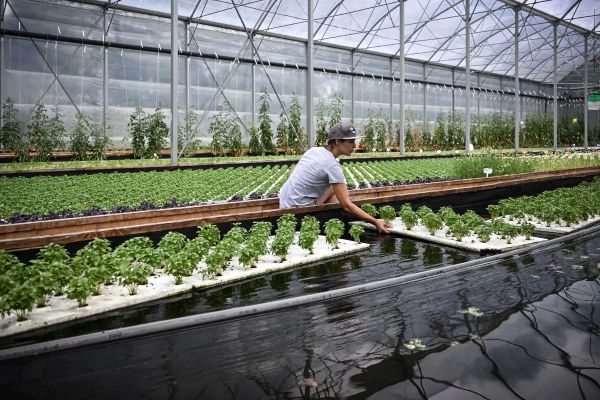Japan’s JICA Empowers Nigerian Farmers with Aquaponics Training to Strengthen Food Security

In a strategic push toward sustainable agriculture and food security in Nigeria, the Japan International Cooperation Agency (JICA) has trained farmers from Oyo and Lagos States on Aquaponics technology — an innovative farming system that combines fish and vegetable production within a single, water-efficient ecosystem.
The intensive workshop, held at the Oyo State Agribusiness Development Agency (OYSADA), focused on equipping local farmers with hands-on skills in aquaponics design, installation, operations, and maintenance — offering a pathway to improved productivity, profitability, and environmental resilience.
JICA’s Senior Programme Officer, Dr. Umar Halilu, said the training aligns with the agency’s commitment to enhancing food security, improving farmers’ incomes, and promoting climate-smart agricultural practices across Nigeria.
“Aquaponics offers a clean, circular, and resource-efficient model for food production. The system purifies itself — clean water flows back from the plants to the fish tanks, reducing water wastage and maintaining ecological balance,” Dr. Halilu explained.
Aquaponics: The Future of Sustainable Food Production
The Aquaponics model is gaining global recognition for its dual productivity — combining aquaculture (fish farming) and hydroponics (soil-less vegetable farming) in one integrated system.
This eco-friendly technology ensures:
✅ Minimal water wastage through recirculation
✅ Chemical-free crop and fish production
✅ Lower operational costs for farmers
✅ Sustainable yields even in urban or space-limited environments
According to experts, this innovation could help Nigeria overcome recurring food insecurity challenges, particularly in the face of climate change, flooding, and declining soil fertility.
Building Farmer Capacity Through International Partnerships
The training — a collaboration between JICA and the Kakehashi Africa Nigeria Initiative (KANI) — marks the third phase of the programme, following earlier successful editions in Benue and Abuja.
President of KANI, Dr. Boluwatife Sarumoh, commended JICA’s leadership in fostering agricultural innovation, urging farmers to embrace aquaponics as a long-term investment in food resilience and self-sufficiency.
“This initiative demonstrates how strategic international cooperation can empower local farmers with technologies that ensure productivity, environmental sustainability, and intergenerational food security,” Sarumoh said.
Government Applauds Initiative, Calls for Broader Collaboration
The Lagos State Commissioner for Agriculture and Food Systems, Mrs. Abisola Olusanya, praised the partnership as a model for inter-state and international collaboration in food system transformation.
Represented by Mr. Akeem Olajobi, Deputy Director at the ministry, she emphasized that the training would build youth capacity, boost agri-innovation, and strengthen Nigeria’s regional agricultural competitiveness.
Similarly, Dr. Debo Akande, Director-General of OYSADA, lauded JICA for driving knowledge-based agricultural reforms.
“This initiative will not only improve farmers’ understanding of aquaponics but also enhance their livelihoods and contribute to the broader goal of sustainable food systems,” Dr. Akande noted.
BRANDECONOMY ANALYSIS: How Aquaponics Can Transform Nigeria’s Food Future
The introduction of Aquaponics technology in Nigeria represents more than an agricultural innovation — it signals a new era of climate-smart food production that can reshape Nigeria’s food security architecture.
With urbanization, erratic rainfall, and resource scarcity threatening traditional farming, aquaponics offers a game-changing solution — one that maximizes land efficiency, conserves water, and ensures continuous harvests year-round.
Nigeria’s partnership with JICA underscores the increasing role of foreign technical assistance in achieving local food self-reliance, especially as the nation seeks to reduce food imports and strengthen its domestic agricultural base.
Experts argue that scaling this model nationwide could:
- Create thousands of green jobs for youth and women.
- Reduce Nigeria’s food import bill by boosting domestic production.
- Enable export-oriented agribusiness growth in fish and vegetable value chains.
As JICA and KANI continue to champion capacity building and technology transfer, aquaponics could become the cornerstone of a sustainable, circular food economy in Nigeria — one that prioritizes innovation, resilience, and profitability for smallholder farmers.












